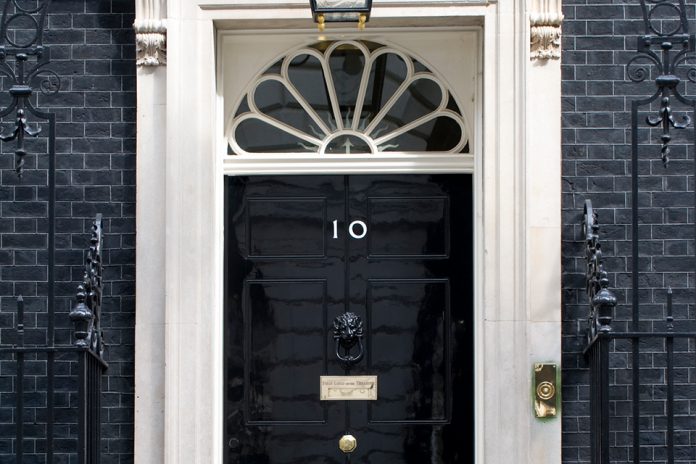Thank you very much Zeinab, thank you Secretary-General Antonio, thank you to my fellow leaders, excellences.
Good afternoon from London, where we are coming to the end of an extraordinary and difficult year, I think with a sudden surge of scientific optimism.
Because after barely 12 months of the pandemic, we’re seeing the vaccine going into the arms of the elderly and vulnerable, vaccines that have been products each and every one of them of vast international efforts in laboratories around the world.
And so my message to you all, is that together we can use scientific advances to protect our entire planet, our biosphere against a challenge far worse, far more destructive even than coronavirus.
By the promethean power of our invention we can begin to defend the earth against the disaster of global warming.
And by that I mean that together we can reduce our emissions, we can radically cut our dependence on fossil fuels, we can change our agricultural practices, and in short we can reverse the process by which for centuries, humanity has been quilting our planet in a toxic tea-cosy of greenhouse gases.
And at the same, we can create hundreds of thousands of jobs, millions of jobs across the planet as we collectively recover from coronavirus.
If you doubt our ability to do that, let me tell you that when I was a child of six, this country depended on coal for 70% of our energy needs. That coal dependency is now down to 3% or less and since 1990, the UK has cut our CO2 emissions by 43% – more than any other G20 nation – and yet our economy has grown by 75%.
Today, we’re putting our foot to the accelerator – in a carbon friendly way of course – with a Ten Point Plan for a Green Industrial Revolution.
We want to turn the UK into the Saudi Arabia of wind power generation, enough wind power by 2030 to supply every single one of our homes with electricity.
We’re going ahead with massive solar programme, even though we can’t hope to emulate the incredible things being done by India, Australia or Morocco for instance. Hydro of course – we’re liberating the awesome potential of hydrogen, whether for homes or all sorts of uses.
On electric vehicles we’re going to ban ICEs, new internal combustion engines by 2030, with a very ambitious programme. We’ll continue to develop new nuclear power.
We want to lengthen the lead of London, the UK, as the natural home of green finance. We want our homes to be emitting progressively less and less CO2 and doing more and more retrofitting of our homes. And wherever the UK may be accused of lagging, we won’t be lagging my friends in lagging.
We want to encourage all modes of green transport, cycling, walking and so on. We want to use the relatively new miracle of carbon capture and storage actually to take carbon from power generation and industrial processes and bury it in under-sea caverns created by the extraction of hydrocarbons.
And we’re now consecrating 30% of our waters, 30% of our land surface, to nature, because we think wild nature is the best way and most effective way of retaining carbon in a natural balance.
We do all these things because they’re right for the world, they’re right for our country – but also because we know that this green industrial revolution will generate as I say hundreds of thousands of high skilled, high paying, good quality jobs for generations to come.
And we’re going to help our friends around the world by moving away from supporting drilling and mining for hydrocarbons, but putting £11.6 billion of our overseas aid to support green technology and decarbonisation across the planet.
We want to work with all of you on this call, on this conference – let’s do it together. Let’s make it our collective commitment, as Antonio has just said, to get to net zero by 2050.
We in the UK, as he says, are going to do our bit, we’re reducing our emissions by 68% at least on 1990 levels over the next decade. And I’m really awed and humbled by the efforts of other countries around the world to set their own targets.
And I just want to repeat that key message. We’re doing this not because we are hair shirt-wearing, tree-hugging, mung bean-munching eco freaks – though I’ve got nothing against any of those categories, mung beans are probably delicious. We’re doing it because we know that scientific advances will allow us collectively as humanity to save our planet and create millions of high skilled jobs as we recover from COVID.
So thank you all very much for joining this conference, this Ambition Summit, thank you to Secretary General Antonio, thank you to my co-host Emmanuel Macron, who I know shares my keen interest in protecting the ecosystems of our seas and oceans, and I look forward to seeing you all in Glasgow face-to-face next year.







